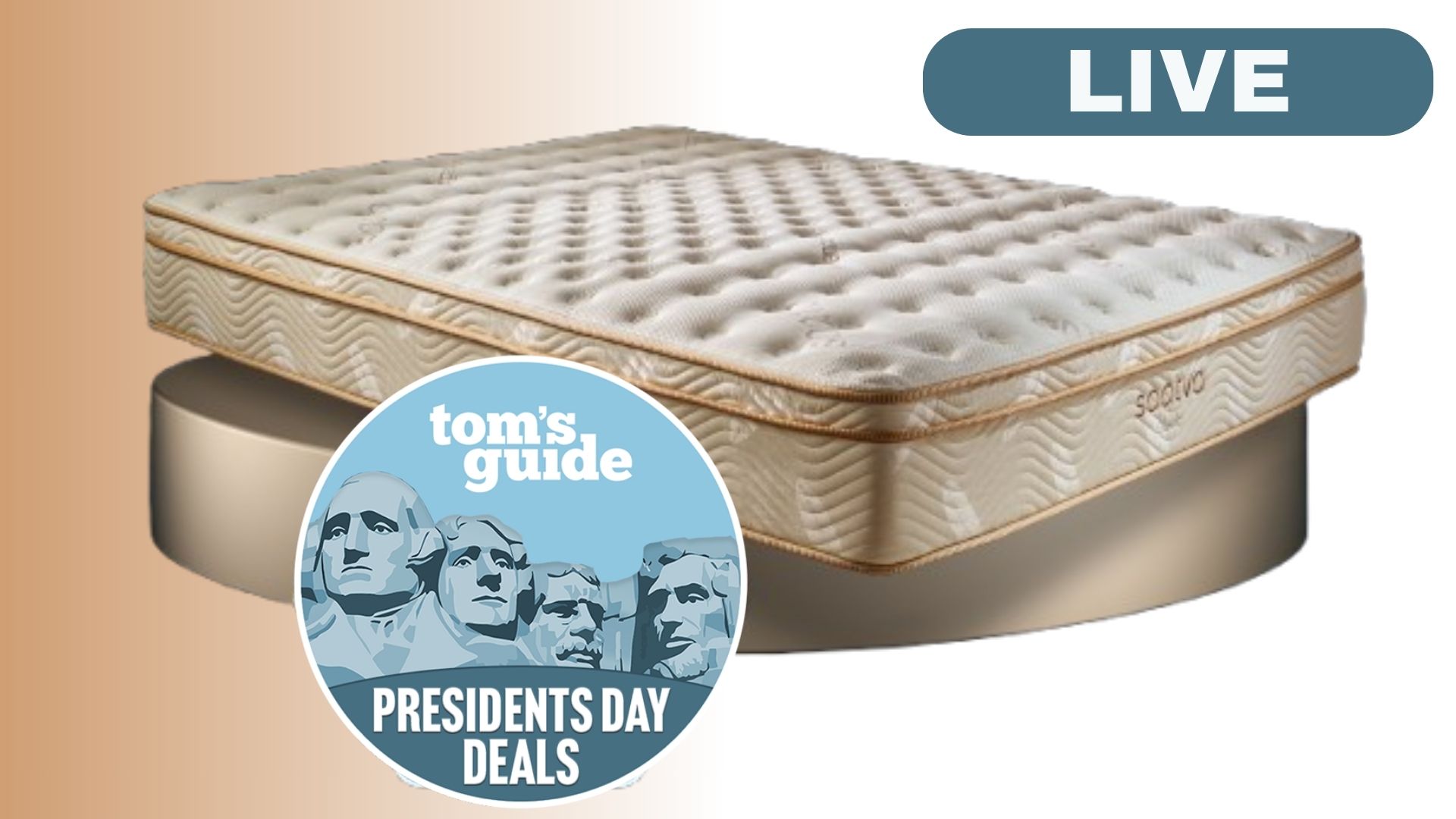Oura Ring vs Apple Watch 8 — which is the best at sleep tracking?
We put the two wearables head to head in bed
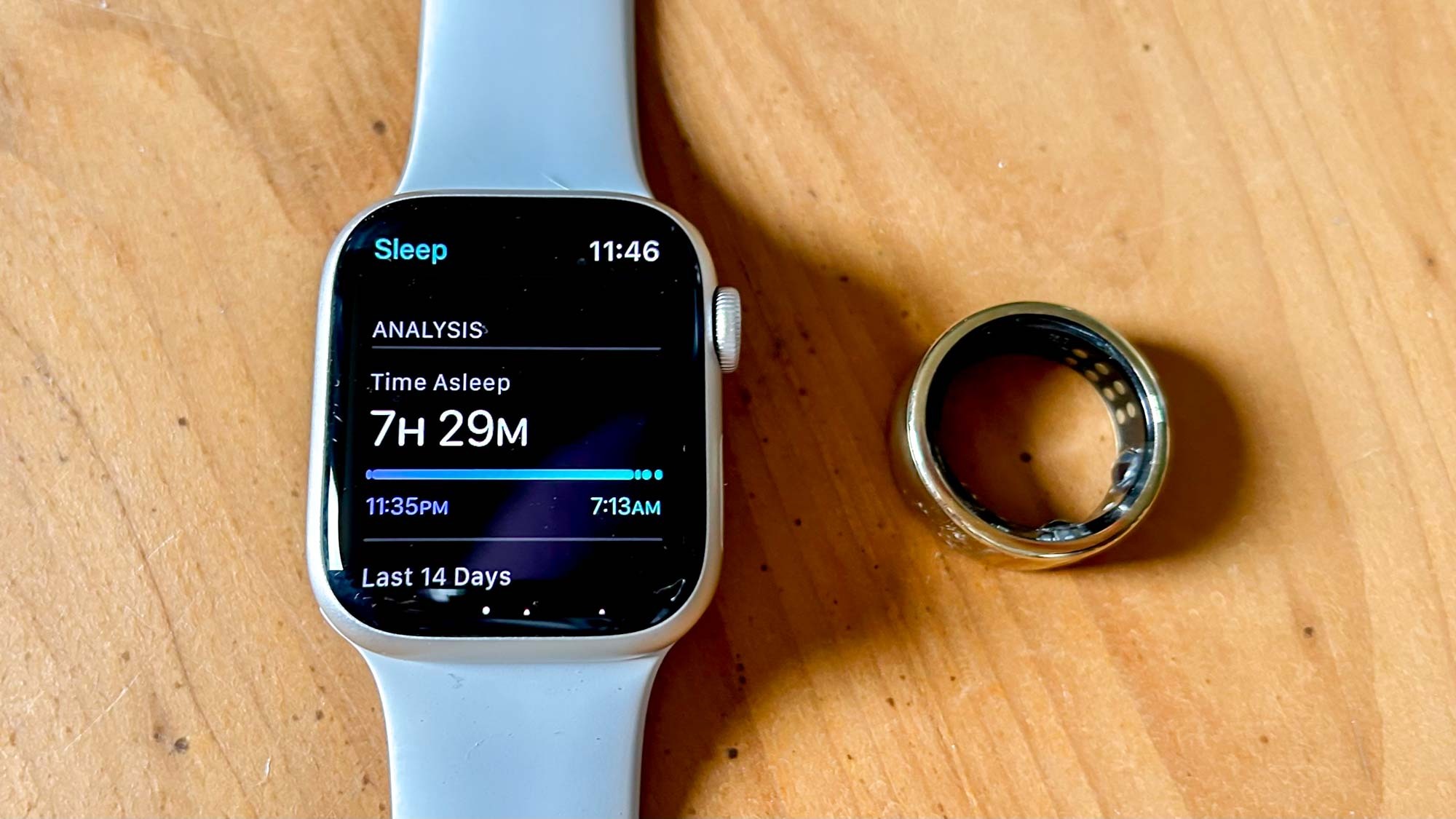
Here at Tom’s Guide our expert editors are committed to bringing you the best news, reviews and guides to help you stay informed and ahead of the curve!
You are now subscribed
Your newsletter sign-up was successful
Want to add more newsletters?

Daily (Mon-Sun)
Tom's Guide Daily
Sign up to get the latest updates on all of your favorite content! From cutting-edge tech news and the hottest streaming buzz to unbeatable deals on the best products and in-depth reviews, we’ve got you covered.

Weekly on Thursday
Tom's AI Guide
Be AI savvy with your weekly newsletter summing up all the biggest AI news you need to know. Plus, analysis from our AI editor and tips on how to use the latest AI tools!

Weekly on Friday
Tom's iGuide
Unlock the vast world of Apple news straight to your inbox. With coverage on everything from exciting product launches to essential software updates, this is your go-to source for the latest updates on all the best Apple content.

Weekly on Monday
Tom's Streaming Guide
Our weekly newsletter is expertly crafted to immerse you in the world of streaming. Stay updated on the latest releases and our top recommendations across your favorite streaming platforms.
Join the club
Get full access to premium articles, exclusive features and a growing list of member rewards.
When it comes to tracking your fitness, one of the biggest metrics that can make a difference to your health is your sleep. Not getting enough sleep doesn't just affect how much coffee you reach for the next morning — it can affect how well your muscles recover from training, your mood and your mental health, and even put you at risk of conditions like high blood pressure and diabetes.
But when it comes to tracking your sleep, what is the best gadget to use?
If you’re comparing the sleep-tracking capabilities of the Apple Watch Series 8 and the Oura Ring, I’ve put the two head-to-head. Both are very different trackers — the Apple Watch Series 8 is the best smartwatch, whereas the Oura Ring looks more like jewelry.
However, both of these wearables track your sleep, heart rate, body temperature and overall health. If you’re deciding between the two, read on to find out more.
Apple Watch Series 8 vs Oura Ring: Price and availability
The Apple Watch Series 8 was released in September 2022, with a starting price of $399/£419 for the 41-millimeter, GPS-only model. The price is $499/£469 for the GPS + cellular version. The 45-millimeter size, meanwhile, will start at $429/£449, and go up to $529/£549 for cellular support.
The Oura Ring Generation 3 is available now and starts at $299 for the Heritage version, which comes in four finishes: Silver, Black, Stealth, and Gold. There’s also the completely round Horizon ring, which comes in five finishes and starts at $349. It’s available in Silver, Black, Stealth, Gold, and Rose Gold.
Apple Watch Series 8 vs Oura Ring: Which is best as a sleep tracker?
From a fitness tracking perspective, the Apple Watch Series 8 is obviously the far superior gadget — it has a screen, which allows you to get live feedback when you’re running or riding, and you can download apps like Strava to allow the smartwatch to double as a running watch. But this article isn’t about the fitness tracking capabilities, it’s about sleep tracking, and when focusing on sleep, the Oura ring comes out on top.
Get instant access to breaking news, the hottest reviews, great deals and helpful tips.
Both devices track your time spent asleep, and how much time you’ve spent in different stages of sleep — this includes time spent awake, in deep sleep, REM sleep, and light sleep (or core sleep on the Apple Watch). This is relatively new for the Apple Watch, and was only launched with the WatchOS 9 update in September 2022. Both devices are comfortable to wear all night long, and allow you to see your heart rate and breathing data while you sleep.
Results and data
Apple Watch Series 8 vs Oura Ring sleep data
| Row 0 - Cell 0 | Apple Watch 10/12 | Oura Ring 10/12 | Apple Watch 9/12 | Oura Ring 9/12 |
| Duration | 7h 56m | 7h 56m | 8h 49m | 8h 49m |
| Awake | 1h 4m | 0h 2m | 0h 33m | 0h 12m |
| REM | 2h 0 | 2h 2m | 2h 1m | 1h 52m |
| Core/Light | 3h 12m | 4h 10m | 4h 39m | 5h 42m |
| Deep | 1h 42m | 0h 55m | 1h 37m | 0h 49m |
The Oura ring makes it easy see where you need to improve. I quickly realized that my sleep latency — how quickly I fell asleep after getting into bed — was often a reason why my sleep score was suffering.
The main difference between the two is how easy the data is to understand. I’ve worn both my Apple Watch Series 8 on my wrist and my Oura Ring on my index finger to track my sleep for the past month and white the data differs slightly (see graph below), the main difference is how the data is presented in the morning.
When comparing the data side by side, the main difference is the Apple Watch seemed to think I spent longer in Core, or Light sleep, and less time in Deep sleep than the Oura ring. Of course, it's impossible to tell which is correct without doing tests in the lab.
With the Oura ring, the app gives you a Sleep Score every morning, which gives you a number at a glance to see the quality of your sleep based on your total sleep time, sleep efficiency, restfulness, and how fast you fell asleep. A score of 85 or higher is optimal, a score between 84 and 70 is good, and below 70 you need to pay attention to your sleep schedule.
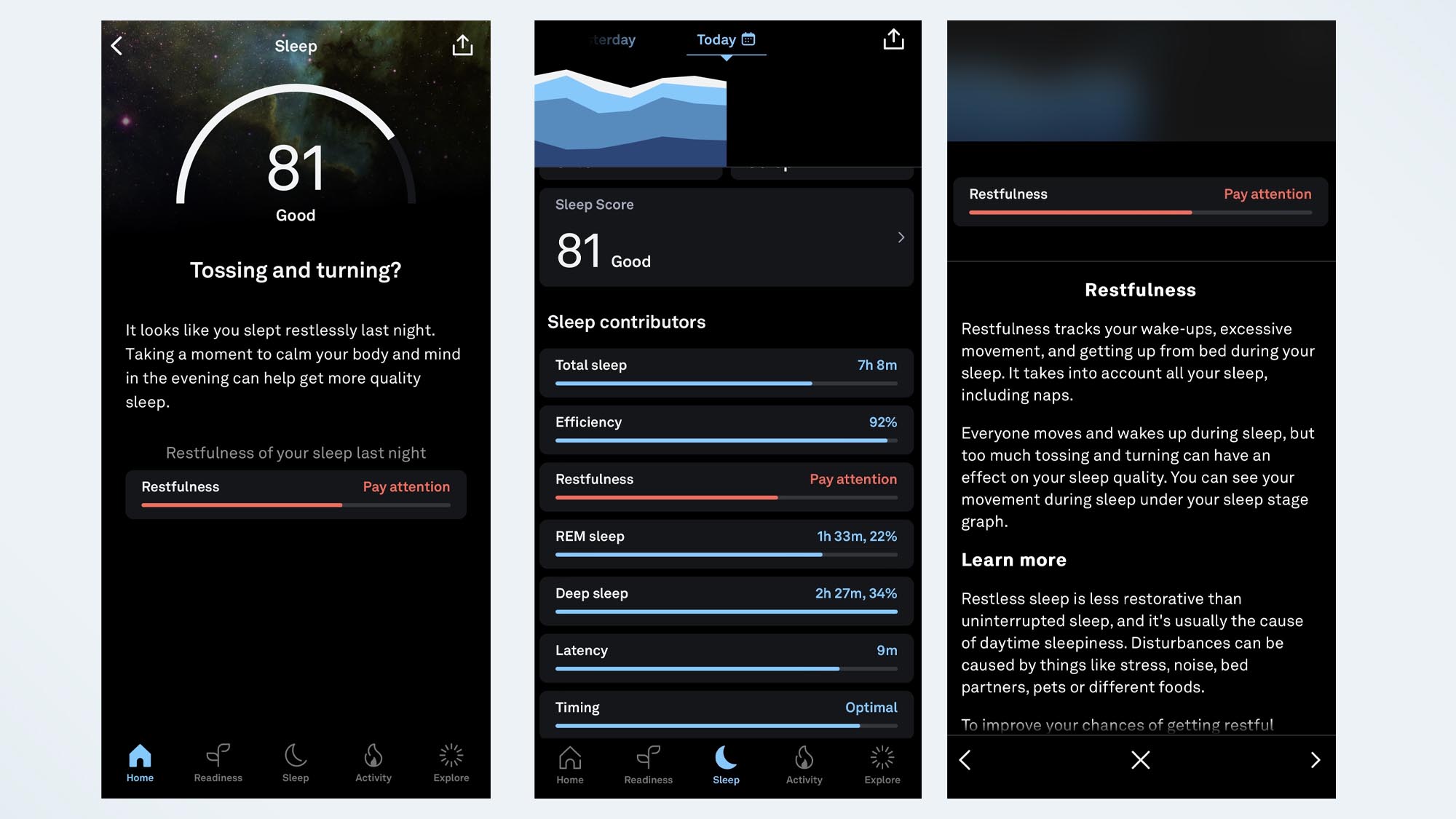
The Oura ring makes it easy to see, at a glance, how well you’ve slept and where you need to improve. I quickly realized that my sleep latency — how quickly I fell asleep after getting into bed, was often a reason why my sleep score was suffering. I realized endlessly scrolling Instagram before putting my head on the pillow meant I was taking longer to unwind, and I made steps to change this.
The Apple Watch doesn’t make it easy to even find your sleep data, let alone make positive life changes because of it. You can find your sleep data and sleep trends in the Health app’s main feed and can see how much sleep you’ve averaged over the past week, but it’s not easy to tell whether you’re sleeping well or not, or make any firm conclusions from the data.
Like always with Apple, there are third-party apps that you can download to help you explore this sleep data, but without these, the Watch itself doesn’t give you anything but the data itself.
Battery life
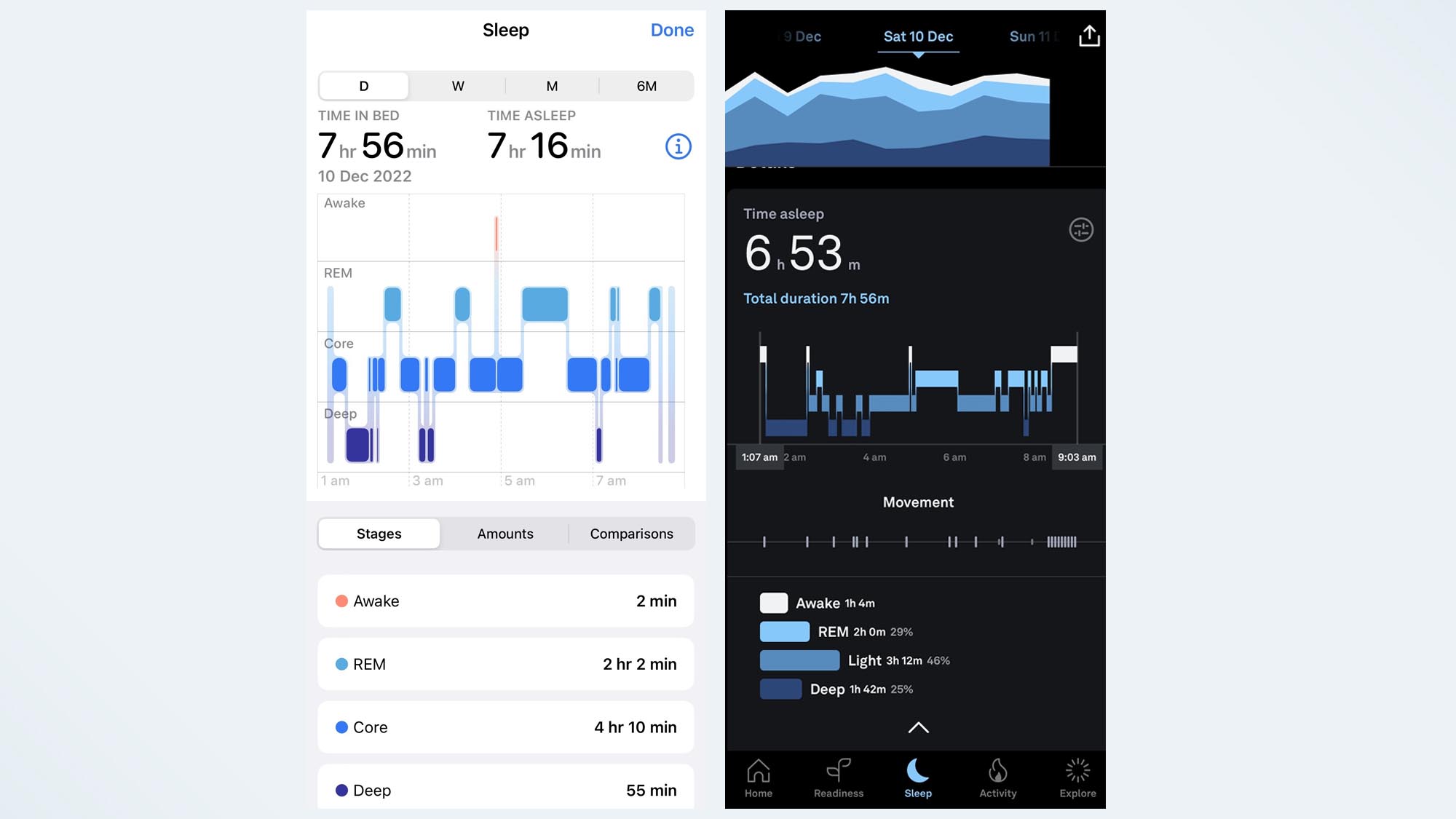
When comparing my sleep data, one thing stuck out immediately — I didn’t wear my Apple Watch every night, and this is because it’s often plugged in and charging overnight. The battery life on the Oura Ring is around 4-7 days, whereas the Apple Watch Series 8 can last 18 hours, or 36 hours with the new low power mode.
Of course, it’s an unfair comparison, as the Apple Watch 8 has a screen, which will obviously use a lot more battery life than the Oura Ring, But from a sleep tracking perspective, the fact I needed to remove my Watch to charge it every other night did affect my data.
Subscription costs
While the Oura ring is, undoubtedly, a fantastic gadget, it does come at a cost, and it’s an ongoing one. You’ll need to pay a couple of hundred dollars to buy either fitness tracker, but in order to use the Oura ring, you’ll need to pay the subscription fee of $6 per month.
Without the membership, the only sleep tracking you’ll get is the Sleep Score — so you won’t be able to see any of the in-depth sleep metrics such as sleep efficiency and total sleep time. Oura gives you the first month for free, but after this, you’ll need to pay.
With the Apple Watch Series 8, you don’t need to pay a monthly subscription, unless you’re downloading a third-party app to help you make sense of the sleep data.
Comfort
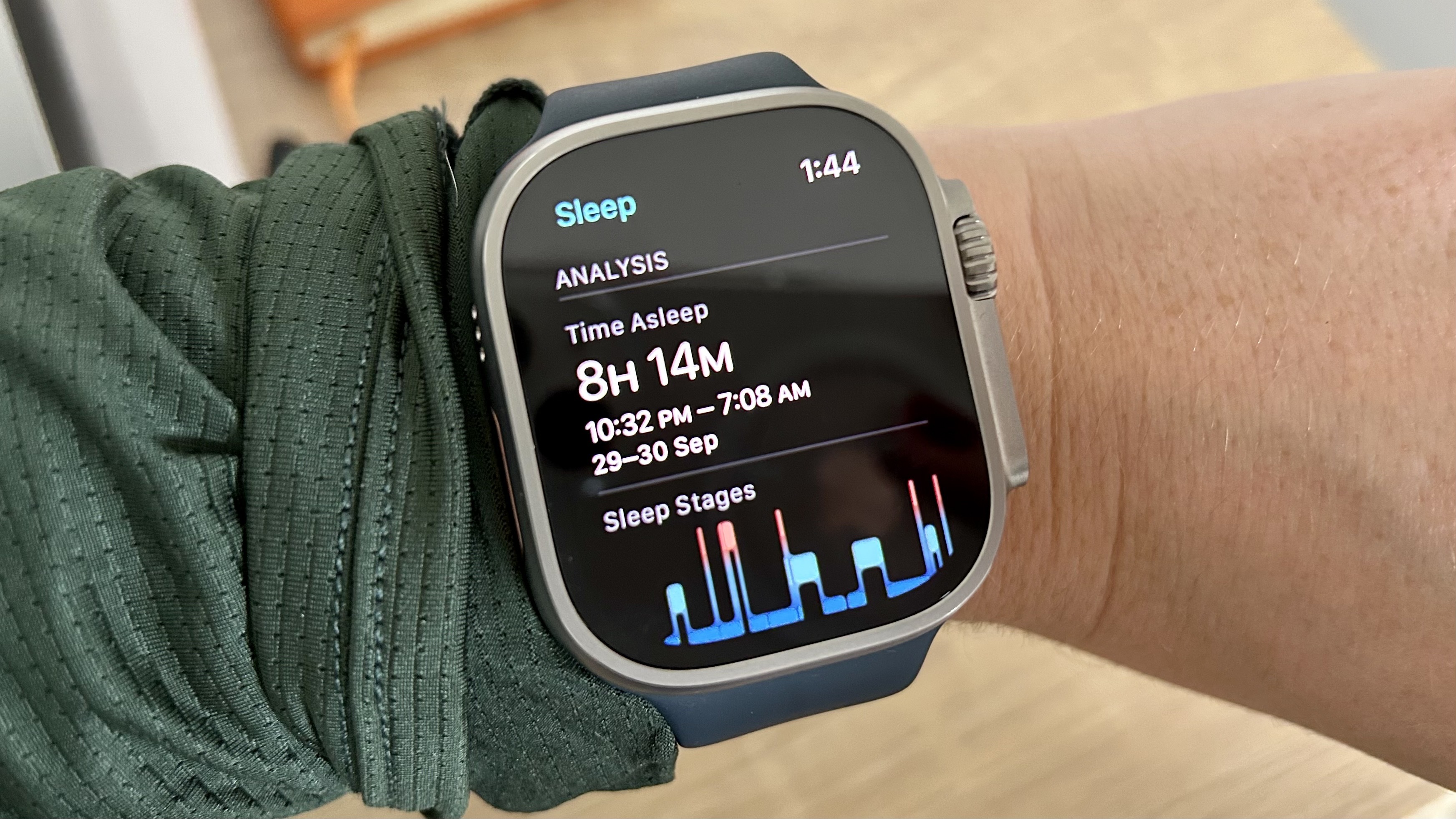
As mentioned above, both the Apple Watch 8 and Oura Ring are comfortable to wear 24/7. By design, in order to get a better picture of your overall health, you’ll want to keep both on your wrist, or finger, as much as possible. The Apple Watch is designed to motivate you to move with those pesky rings (which do work), and serve as an extension of your iPhone, allowing you to check your notifications, reply to messages and pay for things from your wrist.
I found that compared to the Apple Watch Ultra or my Garmin Fenix 7, the Apple Watch Series 8 was comfortable around my wrist at night, although I did loosen the sports strap slightly when going to bed. That said, personally, I didn’t notice the Oura ring on my finger at all when asleep. Oura sends you a plastic ring sizing kit before you purchase the ring, and recommend you wear it for at least 24 hours to help you ensure you buy the right size (your fingers tend to swell when you’re asleep, or after exercise).
Apple Watch Series 8 vs Oura Ring: Verdict
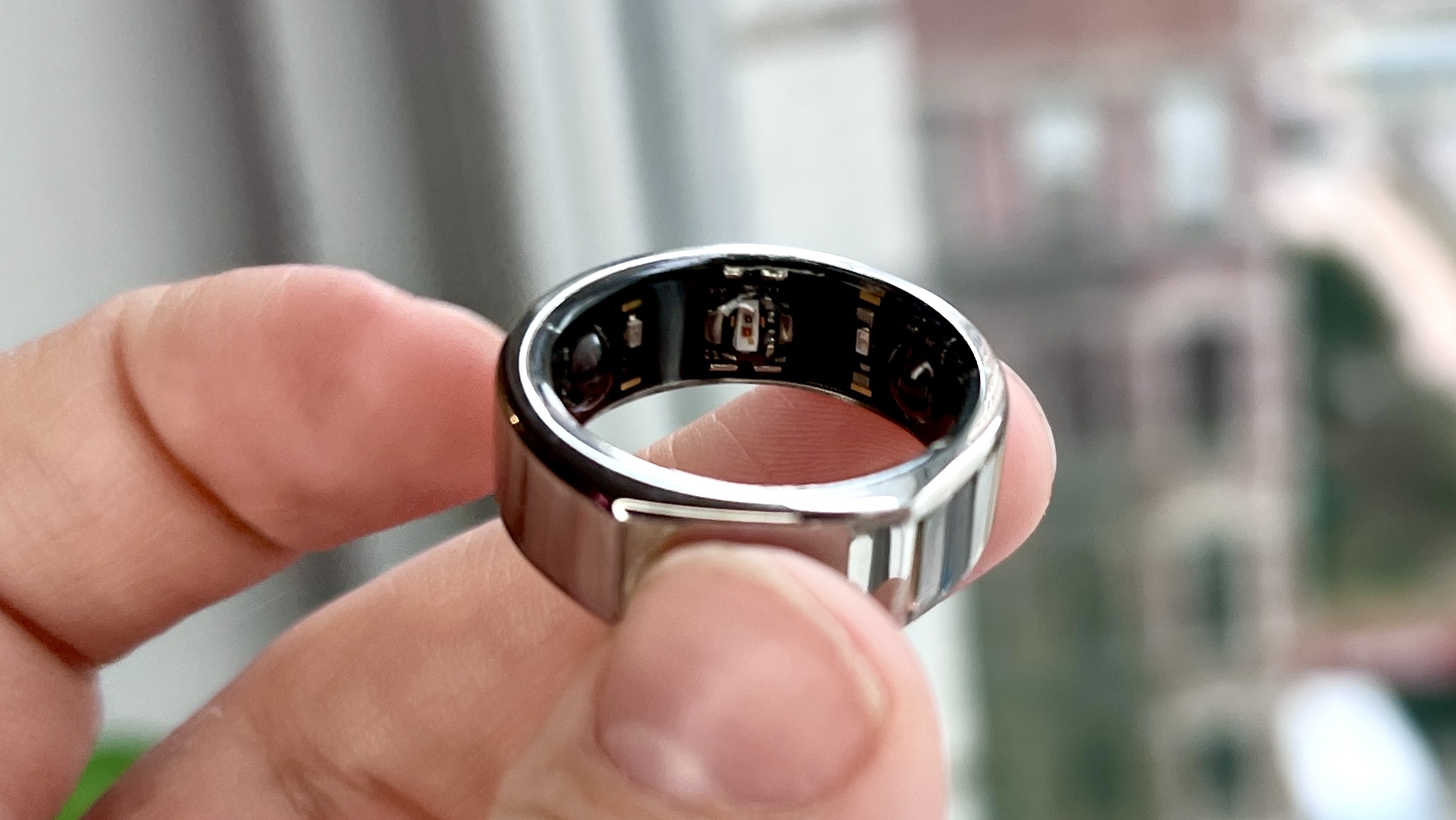
When it comes to which sleep tracker to buy, it completely depends on your personal preference. The Oura ring has longer battery life, a comfortable design that looks more like jewelry than a fitness tracker, and a superior app that makes breaking down the data and making positive changes easier. Yet all of this comes at a cost, and one that’s ongoing.
The Apple Watch Series 8 is one of the best smartwatches on the market. Sure, it’s got a shorter battery life, and its sleep data is slightly harder to understand, but it’s a communication tool that’ll allow you to do more from your wrist than just track your sleep. Plus, there’s just one upfront cost.
While Oura is the better sleep tracker overall, the subscription cost makes the Apple Watch the better, more cost-effective way to track your sleep for most people. Wondering where Whoop 4.0 comes into things? Check our Oura ring vs Whoop 4.0 face-off here to find out more.
Next: My Apple Watch 8 died after a swim — here's what I did next.
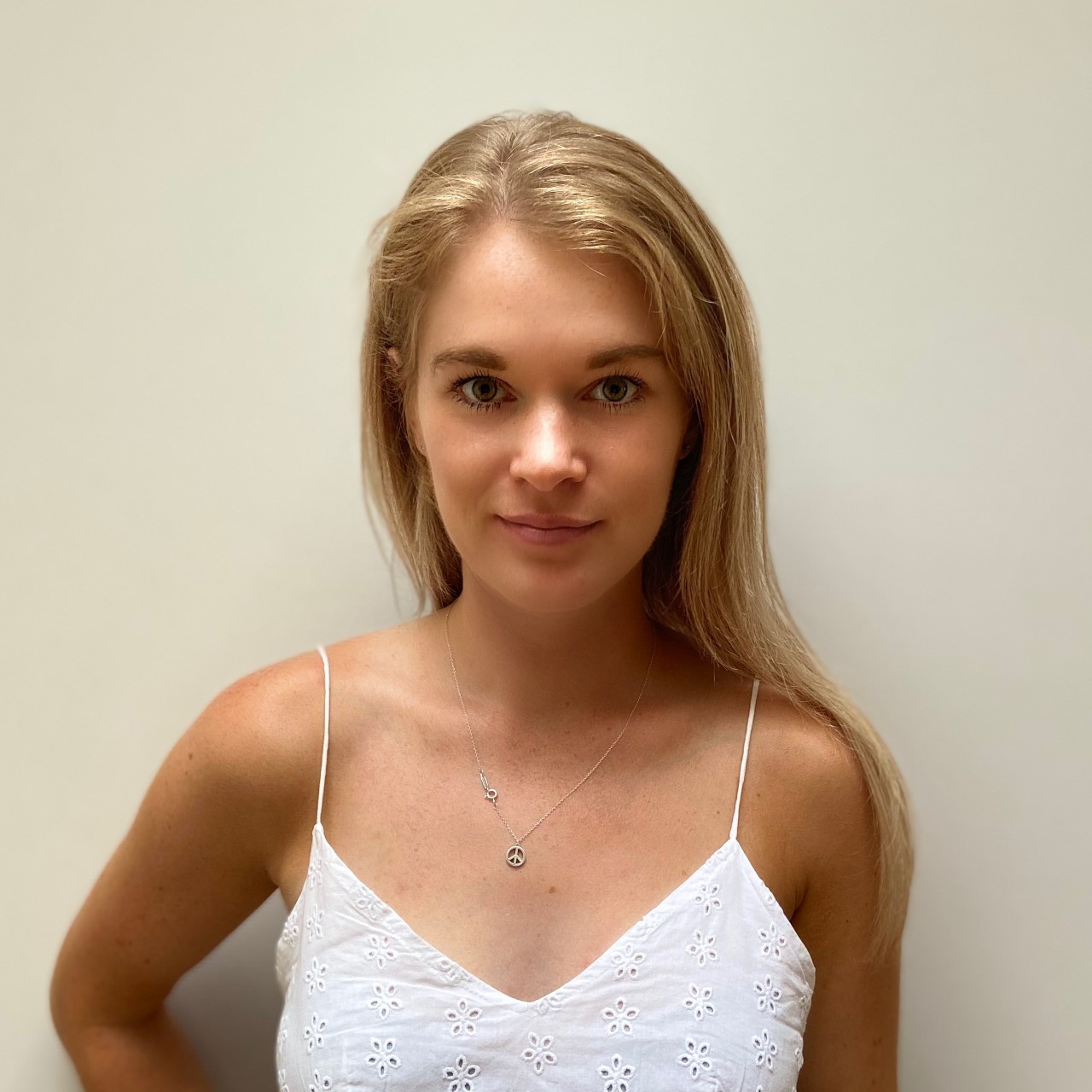
Jane McGuire is Tom's Guide's Fitness editor, which means she looks after everything fitness related - from running gear to yoga mats. An avid runner, Jane has tested and reviewed fitness products for the past five years, so knows what to look for when finding a good running watch or a pair of shorts with pockets big enough for your smartphone. When she's not pounding the pavements, you'll find Jane striding round the Surrey Hills, taking far too many photos of her puppy.
 Club Benefits
Club Benefits










